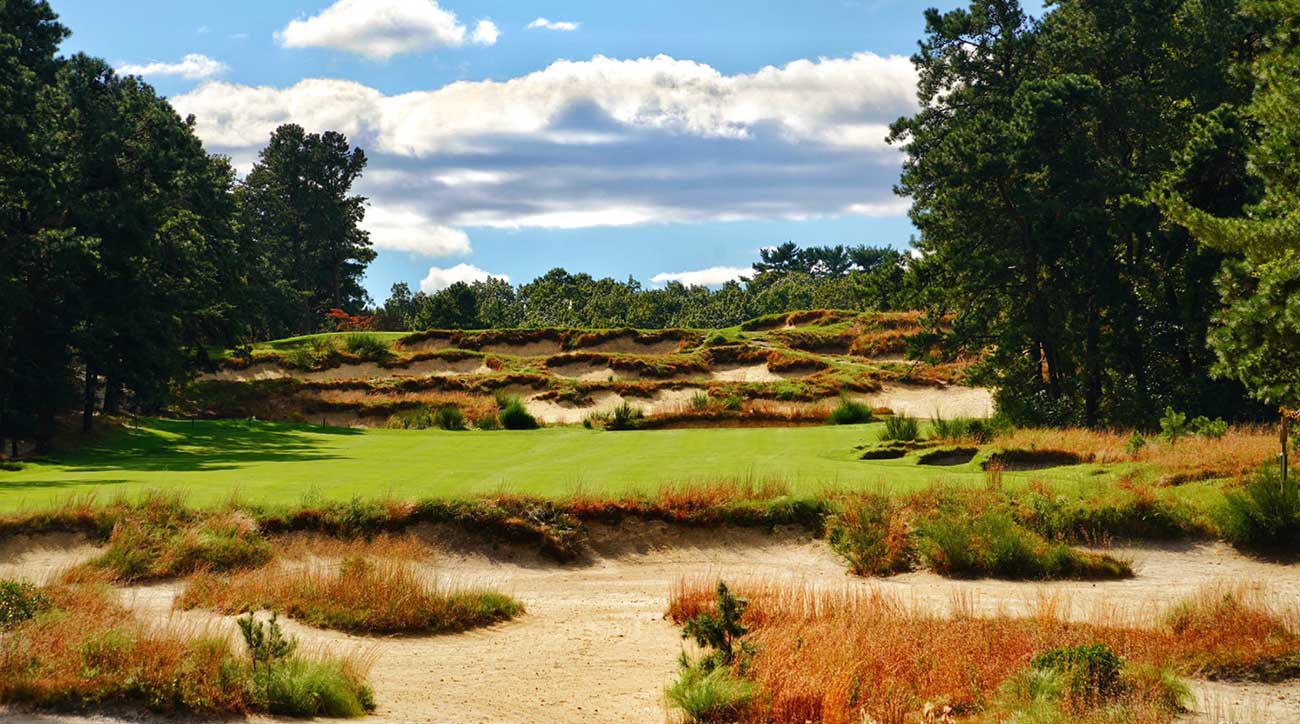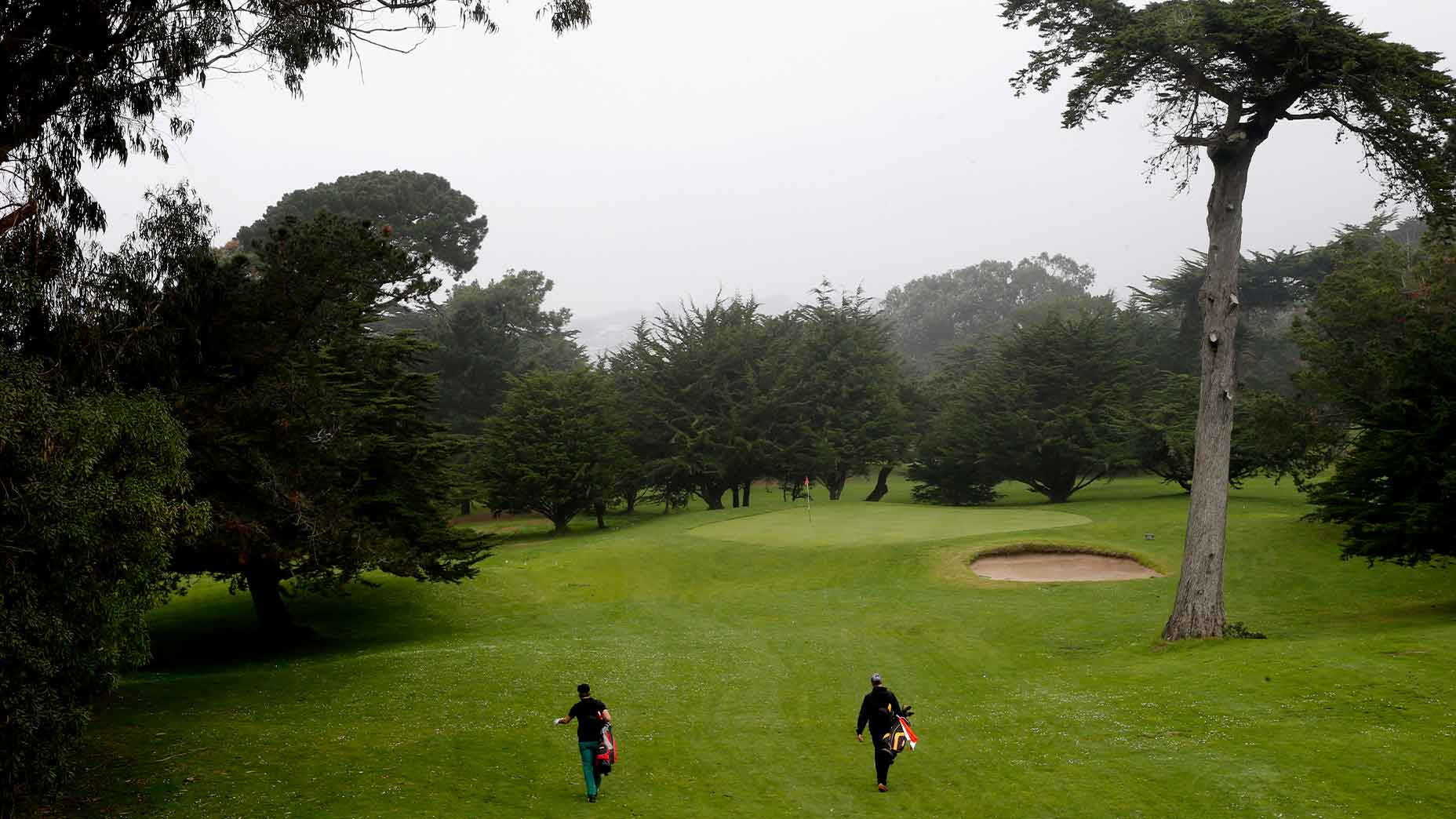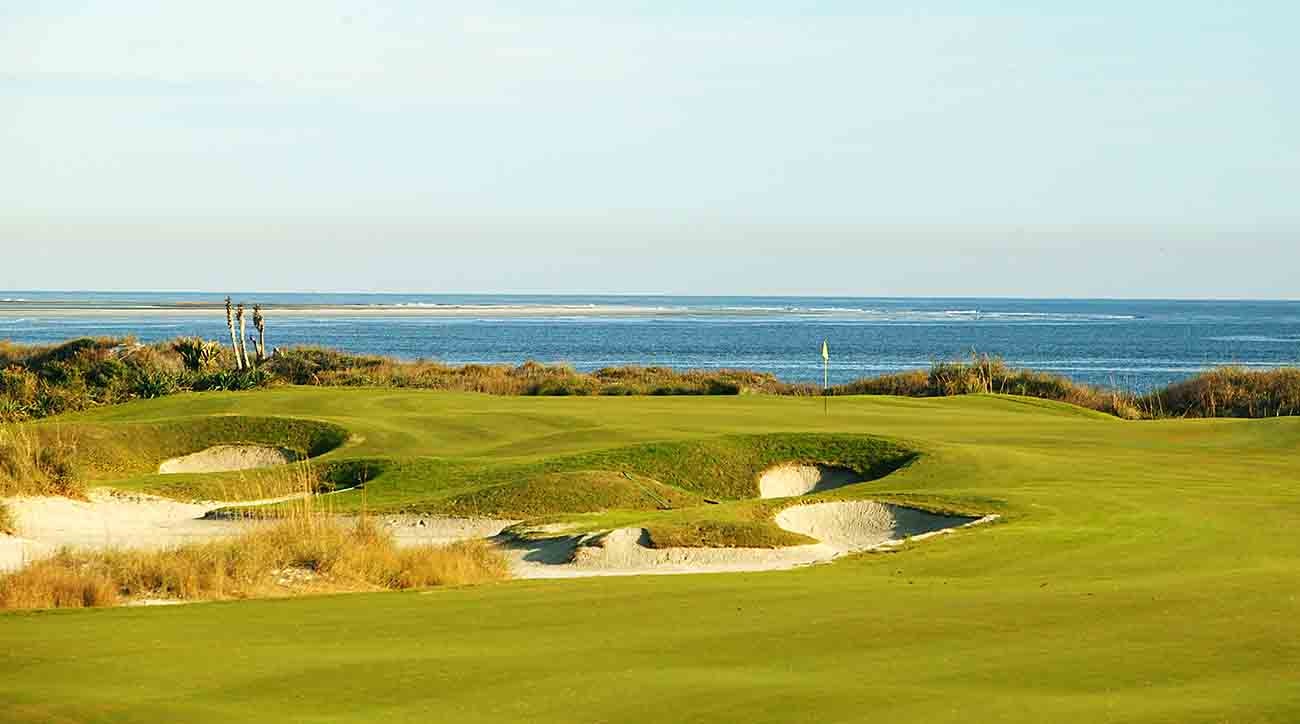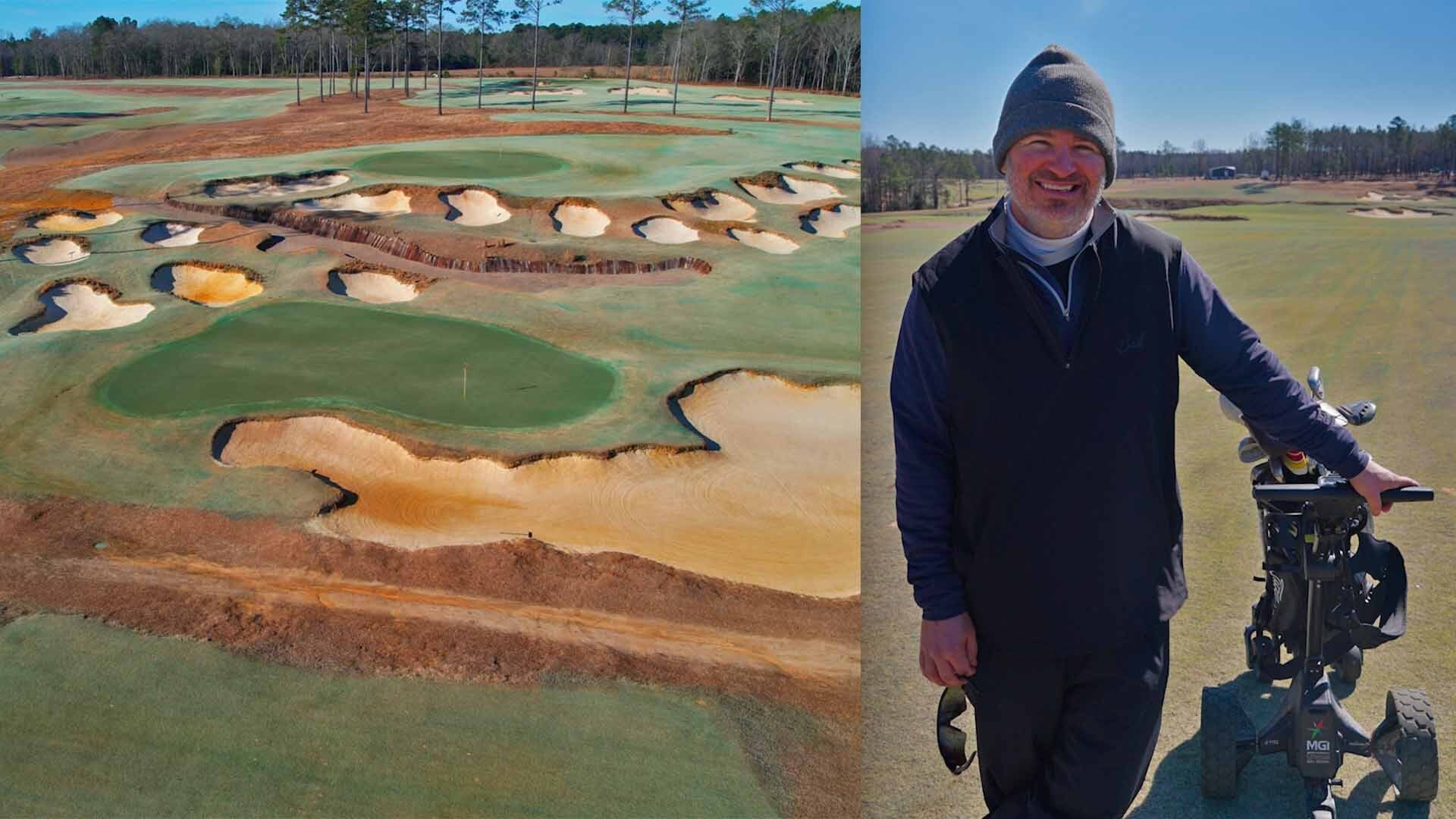 Inside Mike Trout’s epic, Tiger Woods-designed personal golf course
Inside Mike Trout’s epic, Tiger Woods-designed personal golf course
Is this the perfect par 4? This versatile hole fits all topographies and abilities
Ed. note: The inaugural GOLF + Nicklaus Design Challenge, to which contestants submitted plans for their dream par 4s, attracted nearly 200 entrants. From that group, the experts at Nicklaus Design, along with a handful of GOLF editors and writers, nominated 10 finalists — and now we’ve recruited your help in picking the winner. (You can cast your vote here.) To give you more insight into the designers behind the designs and how they conjured their holes, we’re going to profile each of them in more detail in the coming days. The winner — which will inspire a hole design on an upcoming Nicklaus Design course — will be announced on or before May 15. First up: Todd Bramwell…
DESIGNER: TODD BRAMWELL
Age: 45
Residence: Portland, Ore.
Occupation: Business development director for a marketing agency
Handicap: Around 9, but lately playing like a 14
Been playing golf for: At least 30 years
Favorite course you’ve played? Really difficult to say, so I am going to break it up a bit: Outside of the U.S., Scotland’s North Berwick West Links (pure fun, and an incredible study of hole templates that we see today). Within the U.S., Pinehurst No. 2. It just captivates my imagination (no gimmicks, but devilish). I have to shout out to the Truro Links on Cape Cod — a 9-holer that was my introduction to the game (really fond memories of playing with my dad there).
WE WANT YOUR VOTE! Click here to pick the perfect par 4 from among our 10 finalists.
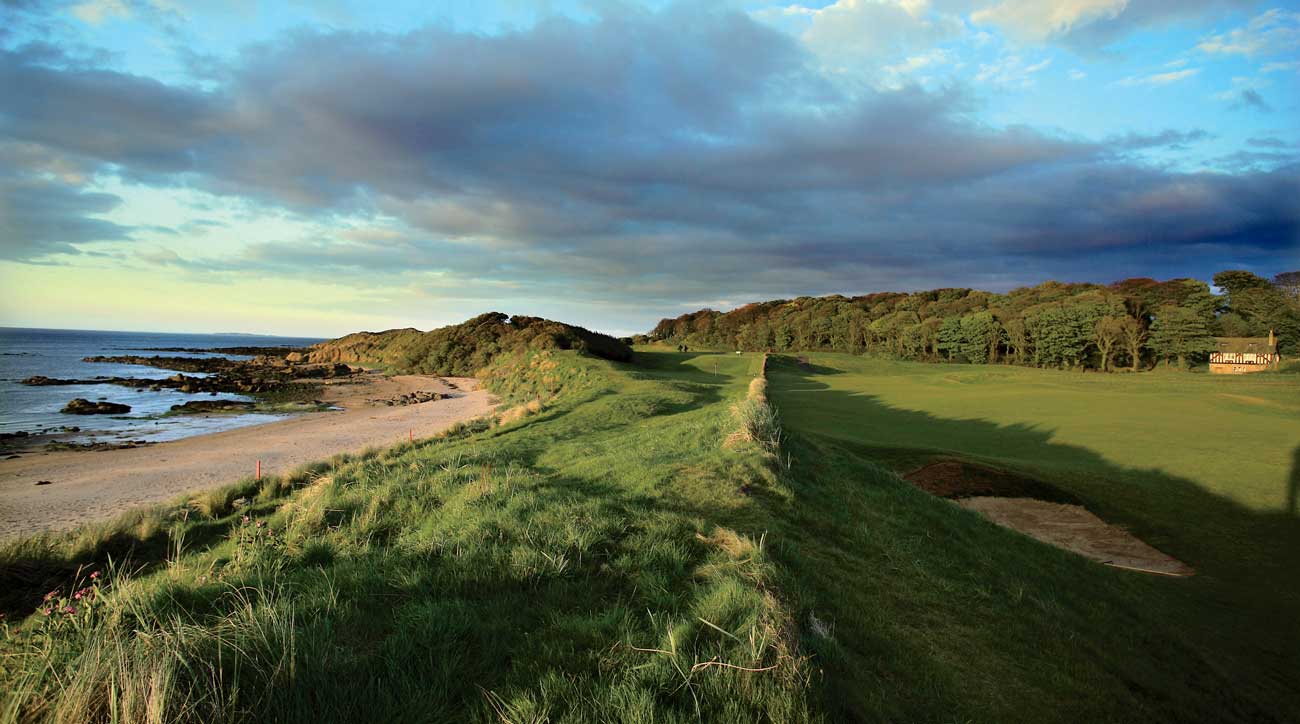
Course you’d most like to play that you haven’t? This is harder than the last question! I’ve been fortunate enough to attend the Masters, so even though I’ve not played Augusta, I have walked it. Of classic era courses, I’d have to go with Seminole, Cypress Point, Pine Valley, Fishers Island or National Golf Links. Modern era, Bandon Dunes (any of them) would be up there, as would Sand Hills. BUT…if I only have one course, it must be Cruden Bay in Scotland. On a trip over there, my dad and I could not get on to play because there was a tournament the day of our visit — it’s “the one that got away.”
Ever designed a golf hole before? Yes, I’ve imagined golf holes for as long as I’ve played the game.
Time spent on your design? A few nights, about 6-8 hours. I drew and re-drew it several times.
ADVERTISEMENT
Please take us inside your creative process:
Since this challenge had some structure to it, I decided to start with a topographical map (nowhere specific, just pulled an image off the internet). I envisioned a hole concept that wasn’t dependent on a dominant feature (water, elevation, trees, etc.) I wanted to provide players with options depending on their skill and approach to strategy. While all the hole’s elements are “right in front of you” there is subtle movement in the terrain creating a hole that is fun to play multiple times and changes with the wind direction. I really like the optical illusion of cross-bunkering through a line of play, while keeping a clear path open for those who require one. The topography of my design uses natural humps and hollows to trick the eye and challenge depth perception. I know Jack likes the fade (whereas I tend to draw), so while the hole is playable either way, the right-handed player who hits a fade is rewarded with a clearer line to the flag.
WE WANT YOUR VOTE! Click here to pick the perfect par 4 from among our 10 finalists.
The process was initially easy — letting the topography dictate landing areas and lines of play. However, when I got deeper into it, perfecting yardages and carries, and width and depth of the features proved challenging. I wanted to have integrity between the distances and club selection that would confront players of varying skill. That part of the design took the longest to dial in.

What was important to me in this design challenge was envisioning a hole that could fit a variety of landscapes and topography. Since we (contestants) do not know the potential location for our hole being built, I did not want to “prescribe” a certain set of conditions. I like to believe my design could fit a variety of terrains, soil structures, and environmental considerations. It is not meant to be a “hero” hole that makes or breaks a round. My design is likely a solid set up hole for the late stages of a front or back nine.
I wanted to celebrate shot value, and alternative lines of play. Creating a choice off the tee, and a chance at recovery for a shot not perfectly executed is a key component of the risk/reward. I value putting/green-side challenges, but prefer that players have options, and the opportunity for a lucky bounce. My green complex is demanding, but not extreme. What I think works particularly well are the teeing options, allowing course superintendents daily variety for tee placement depending on any number of factors (or how challenging they wish to set up the course).
Ultimately, the challenge posed is “pick your poison” — be aggressive off the tee and open up the line of play, or, play conservative and be pressured to execute on the approach. There are no wrong answers, only how committed one is to their game-management skills.
Click here to see all 10 of our finalists and vote for your favorite design.
To receive GOLF’s all-new newsletters, subscribe for free here.
ADVERTISEMENT


